Technical Reports Road bridges
This page lists technical reports of PIARC in the field of road bridges. These publications are classified chronologically.
-
Increase the durability and lifetime of existing bridges
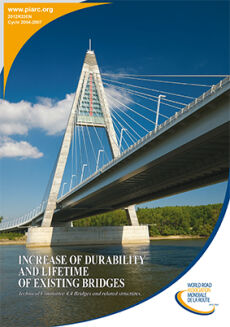
The scope of this study is to present a library of examples on methods of minimizing the maintenance or repair cost or the traffic restrictions through increasing the durability and lifetime of existing bridges or structure components. 49 examples from Europe, Japan, New Zealand, North America and South Africa are presented. They cover all essential construction components (bridge decks, slabs, supports, etc.). The different causes of damage include insufficient design, detailing, construction, [...]
-
Prioritisation of bridge rehabilitation works
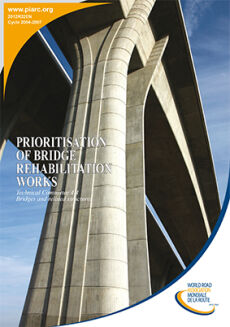
The challenge in bridge management is to ensure that all bridges in a road network remain fit for their intended purpose over their design life and beyond at minimum life cycle cost. The bridge rehabilitation prioritisation process is part of the entire road infrastructure management task and bridge asset managers must seek a balance between the proposed performance targets and reasonable funding needs. This exercise must be conducted in the context of acceptable professional practice and community [...]
-
Inspector accreditation, non-destructive testing and condition assessment for bridges
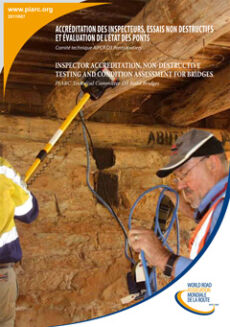
In the area of bridge inspector accreditation, this report reviews and compares the characteristics and qualifications required in various countries. It provides information on training courses, how they are organized, the content of courses, and their duration in order to obtain accreditation as a bridge inspector and requalification on a periodical basis. The second part of the report is a comprehensive analysis of non-destructive testing methods used by the inspectors of structures. For concrete [...]
-
Management of bridge stock
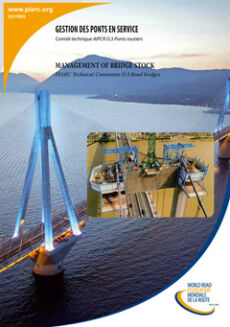
This report presents the results of a survey, to which 16 bridge operators from 11 countries responded, about the management of their bridge stock. The first set of questions deals with the nature of the bridge stock, the management programmes, and the funds allocated yearly for bridge management and inspection programmes. The second set of questions is related to the bridge management system (BMS) used: whether such a system is implemented; who is in charge of data management in the system; [...]
-
Adaptation to climate change for bridges
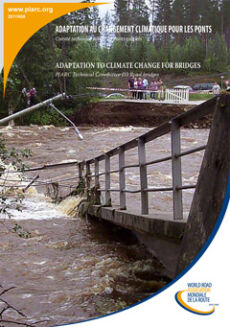
Climate change has now become a global issue of concern and it is for this reason that the World Road Association has incorporated it into the strategic themes for the term 2008-2011. Higher levels of carbon-dioxide as part of greenhouse gas emissions are being released resulting in heat being trapped in the atmosphere, which over time will result in a rise in the earth's air temperature. This rise in temperature will filter into the oceans causing sea water to expand and therefore raise sea levels. [...]